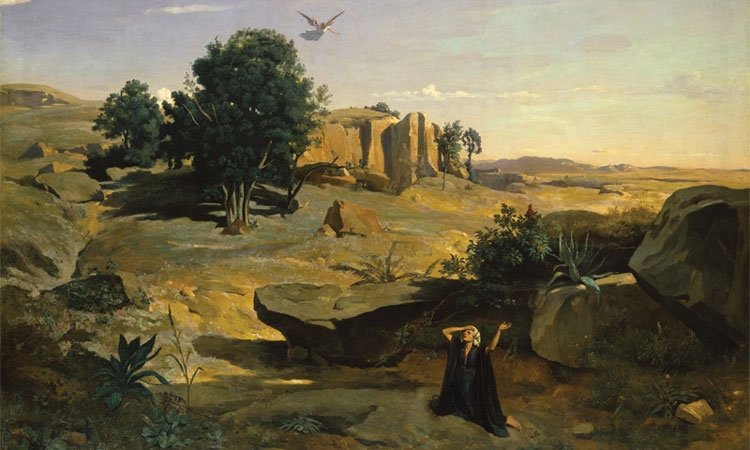I had a basic knowledge of who Hagar was through the various illustrated Bibles I had read as a child. But this year, after deciding to read through the Bible cover to cover, I came away from her story with new perspectives on God’s individual love for each of us.
Hagar was an Egyptian servant to Sarah, Abraham’s wife. 1 She first appears as somewhat of a secondary character in the story of Abraham and the covenants God makes with him. God had promised Abraham offspring as countless as the stars, but Sarah—still not pregnant, and growing impatient at the lack of fulfillment of God’s promise—asks Abraham to take on her servant Hagar as a concubine.
Abraham agrees, and Hagar soon finds herself expecting a child. This is where things begin to get dicey. Jewish and Muslim traditions say that Hagar was the daughter of a pharaoh and had been given to Abraham as a gift during one of his sojourns in Egypt. Whether this is factual or not is hard to determine. Regardless of status, I began to imagine how isolated this Egyptian girl must have felt amidst a people and culture completely different from her own. So when she finds herself pregnant, perhaps she begins to feel that things are looking up for her. Perhaps she hopes that here is a way to define herself amidst a strange people. Perhaps she begins to gloat. Whatever the case, the Bible tells us that she “began to despise her mistress.” 2
Sarah complains to Abraham, and Abraham tells Sarah that Hagar is her business, and that Sarah can do as she sees fit. Whatever Sarah decided to do caused pregnant Hagar to run away into the desert, where we next find her sitting by a spring, slaking her thirst.
Here is the part of the story that I love: God sends an angel to find this runaway girl and talk her into returning to Abraham’s camp. This was a girl who by then probably felt worthless, unwanted, and unloved; a girl with an ego and faults and failings; a girl who was Egyptian, and who perhaps still held on to her previous traditions and pagan gods; a girl who had despised her mistress; a girl who would doubtless go on to screw up more times in the future.
But here in the desert—in the midst of her despair—God appears to Hagar, because underneath the layers of circumstance and choice and faults and failing beat the heart of a creation God had breathed life into. And that’s what God sees and is out to rescue when He sends an angel to find this girl whose existence began in His imagination and whose life story He had recorded in His book.
That one encounter with an angel in that desert place is enough to encourage Hagar to return home. But before doing so, she gives a name to this God who searched her out and spoke to her. She called Him “the God who sees me.” 3
You know those days when you’re not looking or feeling your best? Mine are generally marked by bad hair, a ratty sweater that’s as comfortable as it is ugly, mismatched clothing, and an intense desire to not be seen by anyone. Sometimes my spiritual lacks also make me feel like taking cover, such as when I have questions about how much I love God, or attitudes that need tossing, or prayers I’m neglecting to pray, or things I’m not getting around to. These are things that make me feel quite unworthy of being seen by God.
But it’s the times when you feel most unworthy of love, and yet God does something for you and says you are still worthy, that change you. And that’s what God did for Hagar that day. He showed her that He cared for her, He was watching out for her, and He had a plan for her life. That’s the power of being seen by God. It was that power that gave Hagar inner strength to turn around and return to a situation that she’d felt was intolerable just days before.
There’s so much I like about this story, but here are three main points:
First, there are no secondary characters to God. Perhaps biblical narrative has compressed Hagar’s story into one or two chapters, and addresses her role as a supporting one to the central story of Abraham and Sarah. But God had a book with her name on it, in which she was the star—the story of her life. And that is true for everyone who feels like a secondary character in someone else’s story.
Second, God is aware of the ugliest, lowest moments of your life, yet He still believes in you. Wherever you’re at right now, whatever your spiritual or physical state, God sees you and believes in you.
Third, I love that God went and found Hagar when she ran away. There are so many times in my life when I’ve run away from situations. Perhaps not physically, but I’ve emotionally hightailed it, or closed myself off when feeling overwhelmed. I know I’ve done this to God as well. But God sees just where I’m at, emotionally and physically—geographically, too—and there’s nothing that can separate me from His love.
